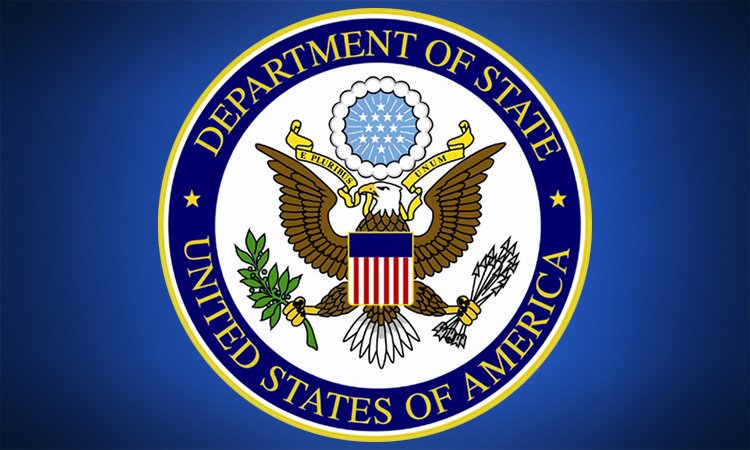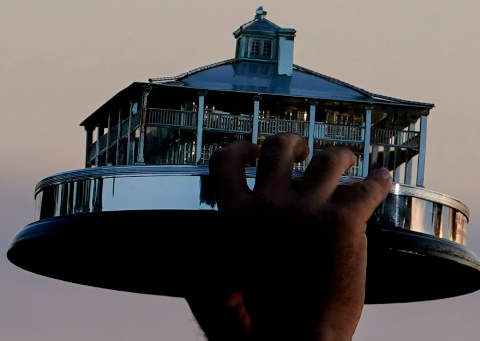This article was originally published in the GPR Spring 2017 Magazine
“To the victor belongs the spoils!” lamented a New York senator in 1828, frustrated by President Andrew Jackson’s use of bribery with government positions to garner support for his campaign. To make room for promised positions, 919 officials were fired—10 percent of all federal officials in 1828. This turnover infuriated citizens, and several terms later public frustrations were exacerbated when President James Garfield was assassinated by an office-seeking supporter. As a result of ensuing political turmoil, civil service reform became a public priority. With this momentum, the Pendleton Act was passed in 1883, creating the Civil Service Commission, which regulated all but the most senior of government positions. With this progressive act, Congress proclaimed the end of the American spoils system.
More than 130 years and several civil service reforms later, Transparency International now ranks the U.S. as the 18th least corrupt country in the world. The American spoils system, however, is not dead. This is perhaps most apparent in presidential transitions, when old political appointees pack up their desks to be replaced by a new administration fresh off the campaign trail. Much of this reorganization is warranted; new administrations are generally accompanied by contrasting ideas and strategies of governance. Numerous positions, however, are dubiously awarded to supporters and donors of questionable merit.
In the Trump White House, it seems that campaign donors and political supporters rule, or at least thus far. According to the Center for Responsive Politics, nine of President Donald Trump’s political appointees together offered his campaign and allied PACs over $6 million, and in the past 27 years, 26 of his political appointees have cumulatively given nearly $27 million to conservative campaigns and organizations. Several of these supporters have tentatively landed positions within the U.S. State Department, where appointed ambassadorial positions are traditionally left open with each administration’s exit.
The American Foreign Service Association (AFSA) categorizes nominees for ambassadorial posts as either “Career Foreign Service Officers” (FSOs), or “political appointees.” FSOs, the backbone of U.S. diplomacy, are career diplomats who spend around 75 percent of their careers abroad. Political appointees are typically businessmen, politicians, or campaign fundraisers. In nearly every case, FSOs are better qualified to fill ambassadorial positions. It is, however, the prerogative of the President to determine who is nominated. The Foreign Service Act of 1980 states that ambassadors, “should possess… a knowledge of the language… understanding of the history, the culture, the economic and political institutions, and the interests of that country,” before stating that ambassadorial posts, “should normally be accorded to career members of the Service.” With this in mind, it would seem that ambassadorial positions would be reserved, in nearly every case, for career diplomats.
Thus far, Trump has nominated six ambassadors: Nikki Haley and Terry Branstad, two republican politicians; David Friedman, his bankruptcy lawyer; and Lew Eisenberg, Bill Hagerty, and Woody Johnson, three fundraisers for his campaign. All of these choices, with the exception of Branstad—an “old friend” of Chinese President Xi Jinping—who was nominated to the ambasadorship to China, are disconcerting; the nomination of his campaign donors and former bankruptcy lawyer, who collectively hold little to no diplomatic experience, borders on patronage. At a minimum, the nominees are below-average choices for ambassadorial posts when compared to the State Department’s FSOs, who often have decades of experience resolving conflict, facilitating trade, and working to improve U.S. diplomatic relations.
The Obama administration was plagued by similar problems, coming under public scrutiny for the appointment of donors to ambassadorial positions. Shortly after first taking office, President Barack Obama stated, “My general inclination is to have [Foreign Service], wherever possible, serve in these posts.” As president, however, Obama nominated more political appointees to ambassadorial posts than career diplomats. Worse yet, some of these posts were offered to seemingly unqualified candidates, surely violating the Foreign Service Act of 1980: Colleen Bell, an ambassador appointed to Hungary, struggled to explain U.S. strategic interests in Hungary during her confirmation hearing; George Tsunis, an unconfirmed appointment for the ambassadorship to Norway, was unaware that Norway was a constitutional monarchy; Noah Mamet, Obama’s nominee for the Ambassadorship to Argentina, was criticized for having never traveled to Argentina. To make things more awkward, each of these candidates—in addition to a number of Obama’s other ambassadorial choice—were “bundlers,” or fundraisers, for his campaign. According to articles by the New York Times and the Los Angeles Times, Colleen Bell solicited over $2.1 million for Obama’s 2012 campaign, George Tunis garnered $1.3 million for Obama’s 2012 campaign, and Noah Mamet raised $371,600 for Obama’s 2008 campaign and more than $1.3 million for his 2012 campaign.
According to the AFSA, political appointees constituted just over 30 percent of all Barack Obama’s ambassadorial appointments. This is quite similar to other presidencies. 31.8 percent of President George W. Bush’s appointments to diplomatic posts were political, and President Bill Clinton’s percentage was only slightly lower at 28.06 percent. The highest percentage of political appointments in the last 40 years was President Ronald Reagan’s 37.6 percent, and the lowest was President Jimmy Carter’s 26.24 percent, but even these extremes are insignificant; rather than showing party differentials, they show a bipartisan tradition of political appointments to diplomatic posts and the continuation of the American spoils system.
Most countries send the U.S. career diplomats, and foreign governments which send political appointees are often riddled with corruption and patronage. AFSA publishes letters from FSOs at the beginning of each presidential transition, and among them calls to end the nomination of political appointees to ambassadorships were prominent. One FSO wrote that, “allies and enemies alike rarely take seriously these appointees, who do careless damage to U.S. foreign policy.” This alone should be grounds for the abrogation of political appointments to ambassadorial posts.
Some argue that political appointees are beneficial to U.S. foreign policy. Because they have a direct relationship with the president, political appointees often have greater access to the highest levels of policymaking. That being said, political appointees, who usually reside in cushy Caribbean or European posts, conversely draw attention away from career diplomats, who generally receive the less glamorous, more dangerous, and arguably more important posts. If political appointees were not allowed to take ambassadorial seats, access to the president would be based on importance to U.S. foreign policy rather than the relationship to the ambassador, and perhaps the Secretary of State would be less likely to be circumvented in this process. Furthermore, the political appointment of ambassadorships undercuts U.S. attempts to encourage the discontinuation of patronage abroad. A system based solely on merit would not only ensure that the State Department is led by the most capable and qualified leaders, but also ensure the stability and nonpartisan nature of U.S. foreign policy.
From presidents like Trump and Obama, leaders who founded their campaigns on promises of “draining the swamp” and “bringing change to Washington”, the American people should expect more. Without enacting change within the executive branch, it is absurd to expect an end to lobbying and the undue influence of money on national politics. If Trump truly wants to “drain the swamp,” he should rethink his ambassadorial nominees and set a new precedent: the appointment of career diplomats to senior diplomatic positions.


